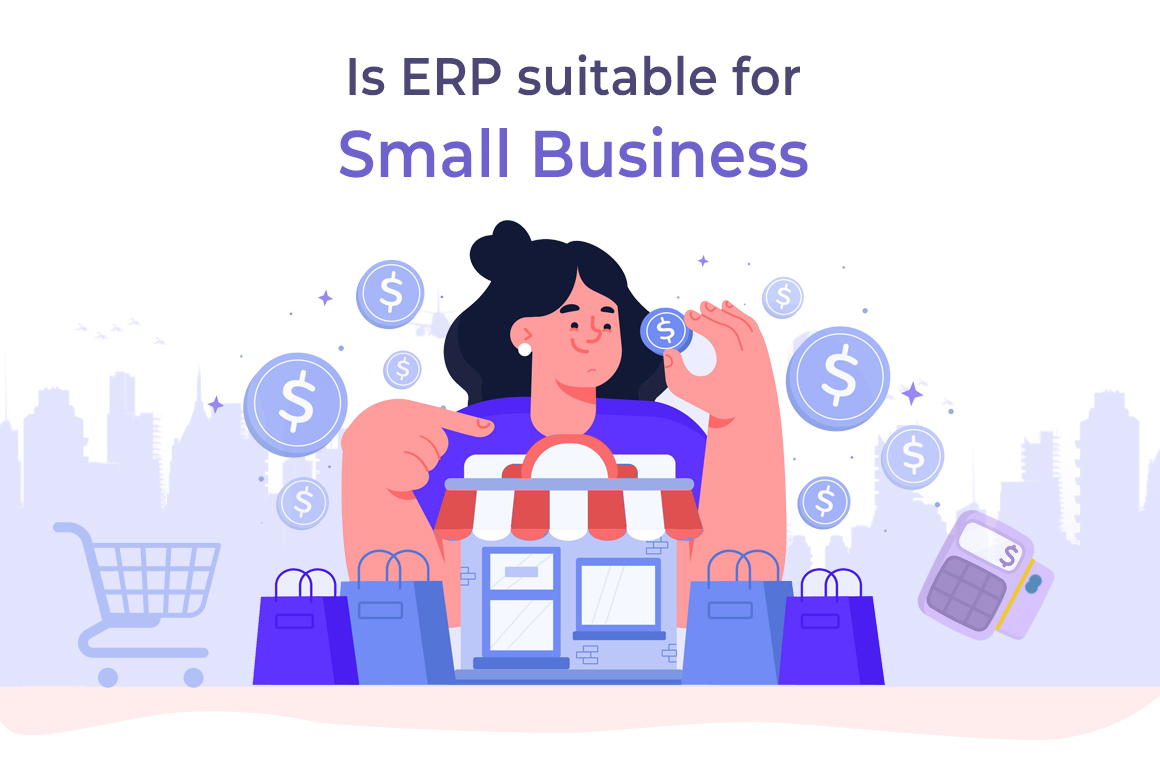A business begins with a concept and a name. Extensive market research is necessary to determine whether the concept can turn into business and can that idea deliver value to customers. It all depends on the nature of the business. The business is also determined by its operational size that is small, medium or large.
Whether you run a small business, a medium enterprise or a large company, there comes many influencing factors such as the technology used, the financial decisions made, sale processes etc. A small business enterprise needs only low capital, less human power and less resources. When it comes to medium it requires the capital and other factors to a level higher than the small enterprises. And if it’s a large business or an organization with multiple operations, all of its processes, workflow and the determinants will be entirely different from that of small and medium businesses.
When it comes to technology, large business organizations and Multinational Companies (MNCs)use the latest and most advanced technology as their operational activities are more complex than other businesses. The small and medium businesses cannot use these advanced technologies as there are many factors behind it. Let’s discuss the same thing, “Is ERP software suitable for small businesses?”
ERP is one of the technologies used by the companies. ERP software is an important automated solution that businesses can use to manage its overall functions. With the help of built in analytic, monitoring and allocation of resources became easier. Common activities like product planning, purchasing, manufacturing and delivery, inventory management, payment, sales management, customer management etc. are performed at ease.
The decision to implement an ERP application for small businesses should not be taken lightly. The application of ERP for small and large businesses are different even though they are running the same area of business. It is needed to acknowledge that large businesses are using ERP for a long time. Small enterprises use the software when their operations and costs come down a notch.
ERP when implemented, it brings together every data and departments to a single database. The daily routine of the business functions is gathered at one single platform. This means that a single database can serve the entire business under one roof through integration and streamlining.
In order to discuss the question “Is it possible for a small business to use ERP?”, we have to analyze the pros and cons of using ERP systems in a business.
An ERP may favor the business in many ways. Some of the benefits of using the program are:
- As discussed the businesses always aim at running their activities smoothly. A structured ERP will aid the organization in controlling the core business operations. It will also bring out a healthy budget plan for the business.
- Compliance with the regulatory standards are relieved through an effective ERP system. This means that all the regulatory needs of the business. ERPs ensure safety from all external factors.
- Vast quantity of information is used in every business. The data are highly confidential for the organization. The organizations have to make sure that all the details stored are safeguarded against leakage. This is made easy by ERP packages whereby the data is stored and managed without any chance of getting leaked out.
- Risks are something that are unavoidable in a business. There will be a risk management team to handle everything that connects the business. But, it is a truth that executives can control risk factors only to an extent. Enforcing an ERP will identify and reduce the risks significantly. Along with this the occurrence of errors can also be decreased.
- Running a business incurs huge costs as the organization runs a wide range of operations. The organization may sometimes come across over cost and under cost. Both of these will affect the business and its growth. An ERP program will help the business in cost reduction. It will also ensure that the resources are used wisely.
- A business can work properly when the employees are contributing to their best. If there is no coordination and contribution between the employees and the company, then it will bring down the development of business. It is therefore important to maintain a harmonious relation between the company and employees. Through a properly structured ERP solution the organization can bring out an apt employees’ coordination. With these there will be no breakage in the communication channel and the operations can also be carried out without any hindrance.
- Customers play a major role in the business. The prime role of the business is to maintain a proper relationship with the customers. Organizations have to update the customers with their latest news. Companies are also responsible to serve the customers on time. It is not righteous for the companies to make the customers wait for a response. If the inquiries of the customers are not cleared in time it will lead to lowering the trust build among the customers. The right ERP ensures that the customers are updated on time and the customers are served on time. This will help in gaining the customers trust and in improving the satisfaction of the customers.
As the advantages have been listed out, it’s time to discuss the cons regarding implementation of ERP systems in small business concerns.
- Opting for an ERP will surely help in cost reduction of the organization. But, the issue is that the implementation cost will be very high than expected. If the organizations are not able to control the implementation cost, then it will tremendously affect the further operations of the business.
- Another aim of ERP is to save the time of personnel’s’ time in the organization. In order to run the core functions of the business, it takes time for the executives. ERPs help in smooth flow of the business functions. When it comes to small business concerns, it requires a lot of time for moving data from the old system to the new ERP system. And at the same time it will also affect the movement of workflow in the business.
- Employees are the key factors that run the business. They should be knowledgeable enough to understand the processes of the business. Integrating an ERP software requires staff training. If the employees are not fully aware of the latest technologies and its uses, then it will impact the business and the company will also be notable to reap full benefit from the operating system.
- As the risks in business are covered with an efficient ERP package, it can’t be made sure that implementation of ERPs is a risk free process in the organization. Adapting to newer technologies will be really risky to the concerns. There are also chances of failure as the businesses are run on a small scale with limited resources. The company will not be able cover the risk completely and it may bring down the performance of the enterprise.
The top notch companies pay out vast sums of money to implement ERP software. This might not be feasible for the enterprises running on a small scale. Whether the small enterprises can benefit from the ERP applications depends on the willingness of the company to give away money, time and effort for installing the program. It also requires providing enough training to the employees.
As with all major business decisions, it all counts down on the capacity and performance of the enterprise. Elvis Retail ERP solution offers easy management of billing, payments & inventory for retail industry.
Contact us today to know more:
👉 Mail: sales@elviserp.com
❄️ Website: https://www.elviserp.com/
☎️ Phone: +60 1164530064 / +91 9074996940








